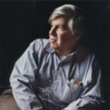The accidental species : misunderstandings of human evolution
(Book)
599.938 GEE
1 available
Copies
| Location | Call Number | Status |
|---|---|---|
| Cherrydale - Adult Nonfiction | 599.938 GEE | Available |
Description
More Details
Notes
Subjects
Excerpt
Similar Titles From NoveList
Similar Authors From NoveList
Published Reviews
Choice Review
The idea that modern humans are the pinnacle of natural selection is deeply ingrained into popular culture and some scientific thought. Gee (senior editor, Nature; In Search of Deep Time, CH, Jul'00, 37-6287) wants readers to understand that this progressive, linear understanding of human evolution is a misconception. Not only is the fossil record of human ancestors spotty, but it is often improperly interpreted by researchers biased toward a view of evolutionary history as an inevitable march toward domination of the planet by Homo sapiens. The author uses the first half of his book to convincingly demolish the notion that human evolution is exceptional. Unfortunately, in the second half, he uses anecdotes and faulty logical jumps to argue that nothing about our species is unique. For instance, according to Gee, because much of human interaction is homologous to the social nattering of animals, it is proper to write off all human communication as commonplace. Anatomy, technology, intelligence, and language are all dismissed as unimportant as far as distinguishing humanity from our ancestors or other animals. The book's style is clear and often witty, but Gee's refusal to acknowledge that ordinary evolutionary mechanisms can have extraordinary results is disappointing. Summing Up: Recommended. With reservations. Lower- and upper-division undergraduates; general readers. J. L. Hunt University of Arkansas--Monticello
Publisher's Weekly Review
Gee, paleontology editor at Nature, confronts two commonly held views of evolution and effectively demolishes both, persuasively arguing that evolution doesn't work the way most people believe it does and that the entire concept of "human exceptionalism" (the idea that humans are fundamentally superior to other animals due to "language, technology, or consciousness") is erroneous. By providing a cogent description of natural selection, he explains how evolutionary progress does not necessarily lead to increasingly complex organisms, and why it makes no sense to consider adaptation yielding an ideal fit between an organism and its environment. Building on this concept, Gee demonstrates that there is nothing about humans, from our bipedalism to our tool-making abilities, and from language to cognition, that definitively sets us apart from other species of animals. He buttresses these points with an impressive and accessible overview of the pattern of human evolution, showing just how little we actually know and arguing that different evolutionary stories could likely fit the extant data. Throughout, he explores how science simultaneously explains the unknown while raising new questions. Gee is also adamant that the process of evolution is the best explanation we have for the diversity of life, and he provides a scathing attack on creationists who have taken his words out of context and used them to support their own pseudoscientific claims. (Oct.) (c) Copyright PWxyz, LLC. All rights reserved.
Library Journal Review
Gee (paleontology editor, Nature; A Field Guide to Dinosaurs) sets out vehemently to dispute our common tendency to see ourselves as the pinnacle of creation, the bold, brilliant branch that is the final growth of the evolutionary tree of life. He articulately reinforces that the fossil record is sparse and that interpretations of this record frequently mislead us to think of evolution as an onward push of progress and improvement. The author then reviews features of human beings that some think, mistakenly, differentiate us from the rest of the animal kingdom. He begins with bipedalism, discussing it as a likely by-product of sexual selection, and then moves on to technology, large brain size, intelligence, language, writing, and, lastly, sentience. Gee defines each of these characteristics, giving several examples of them in other organisms throughout the animal world that fit within the boundaries of his definitions. In addition, he provides personal anecdotes and humor as he makes his points. VERDICT Gee succeeds in his arguments against media-influenced methods for analyzing and presenting the story of human evolution. Readers who already have a background in the study of human evolution are likely to appreciate this thought-provoking and challenging book.-Neil Dazet, Brooklyn Coll. Lib. (c) Copyright 2013. Library Journals LLC, a wholly owned subsidiary of Media Source, Inc. No redistribution permitted.
Library Journal Reviews
Gee (paleontology editor, Nature; A Field Guide to Dinosaurs) sets out vehemently to dispute our common tendency to see ourselves as the pinnacle of creation, the bold, brilliant branch that is the final growth of the evolutionary tree of life. He articulately reinforces that the fossil record is sparse and that interpretations of this record frequently mislead us to think of evolution as an onward push of progress and improvement. The author then reviews features of human beings that some think, mistakenly, differentiate us from the rest of the animal kingdom. He begins with bipedalism, discussing it as a likely by-product of sexual selection, and then moves on to technology, large brain size, intelligence, language, writing, and, lastly, sentience. Gee defines each of these characteristics, giving several examples of them in other organisms throughout the animal world that fit within the boundaries of his definitions. In addition, he provides personal anecdotes and humor as he makes his points. VERDICT Gee succeeds in his arguments against media-influenced methods for analyzing and presenting the story of human evolution. Readers who already have a background in the study of human evolution are likely to appreciate this thought-provoking and challenging book.—Neil Dazet, Brooklyn Coll. Lib.
[Page 99]. (c) Copyright 2013. Library Journals LLC, a wholly owned subsidiary of Media Source, Inc. No redistribution permitted.Publishers Weekly Reviews
Gee, paleontology editor at Nature, confronts two commonly held views of evolution and effectively demolishes both, persuasively arguing that evolution doesn't work the way most people believe it does and that the entire concept of "human exceptionalism" (the idea that humans are fundamentally superior to other animals due to "language, technology, or consciousness") is erroneous. By providing a cogent description of natural selection, he explains how evolutionary progress does not necessarily lead to increasingly complex organisms, and why it makes no sense to consider adaptation yielding an ideal fit between an organism and its environment. Building on this concept, Gee demonstrates that there is nothing about humans, from our bipedalism to our tool-making abilities, and from language to cognition, that definitively sets us apart from other species of animals. He buttresses these points with an impressive and accessible overview of the pattern of human evolution, showing just how little we actually know and arguing that different evolutionary stories could likely fit the extant data. Throughout, he explores how science simultaneously explains the unknown while raising new questions. Gee is also adamant that the process of evolution is the best explanation we have for the diversity of life, and he provides a scathing attack on creationists who have taken his words out of context and used them to support their own pseudoscientific claims. (Oct.)
[Page ]. Copyright 2013 PWxyz LLCReviews from GoodReads
Citations
Gee, H. (2013). The accidental species: misunderstandings of human evolution . University of Chicago Press.
Chicago / Turabian - Author Date Citation, 17th Edition (style guide)Gee, Henry, 1962-. 2013. The Accidental Species: Misunderstandings of Human Evolution. Chicago: University of Chicago Press.
Chicago / Turabian - Humanities (Notes and Bibliography) Citation, 17th Edition (style guide)Gee, Henry, 1962-. The Accidental Species: Misunderstandings of Human Evolution Chicago: University of Chicago Press, 2013.
Harvard Citation (style guide)Gee, H. (2013). The accidental species: misunderstandings of human evolution. Chicago: University of Chicago Press.
MLA Citation, 9th Edition (style guide)Gee, Henry. The Accidental Species: Misunderstandings of Human Evolution University of Chicago Press, 2013.






























